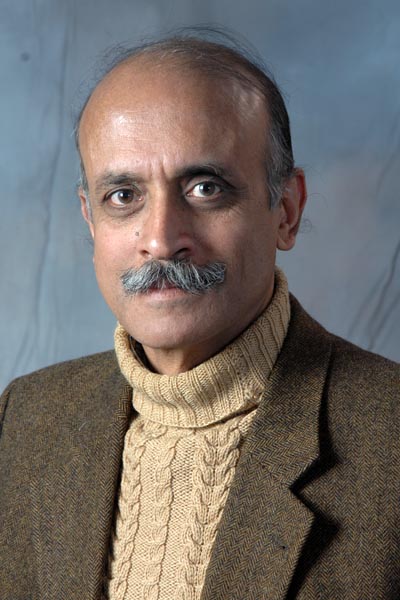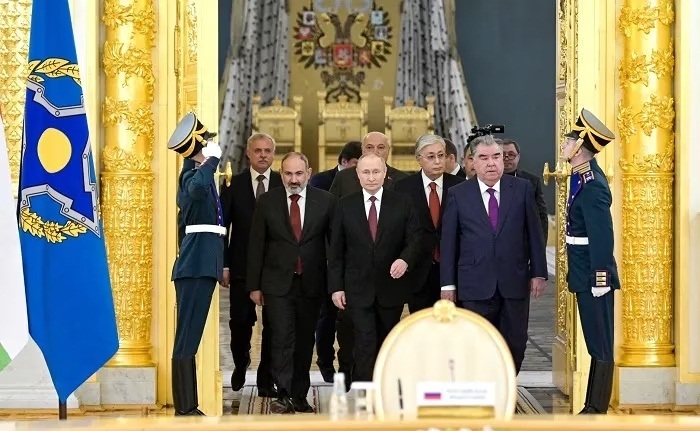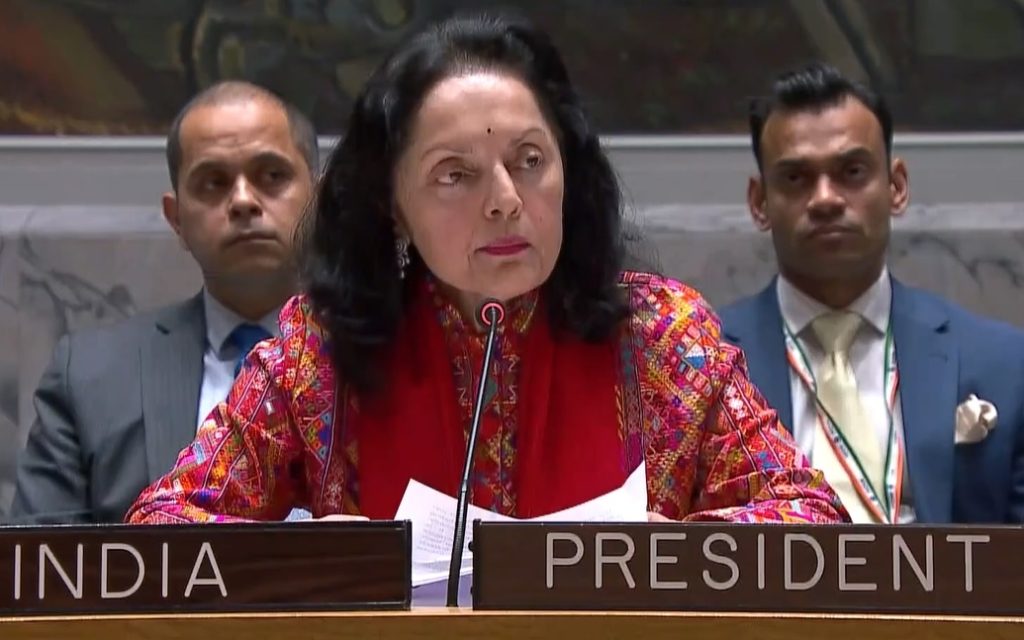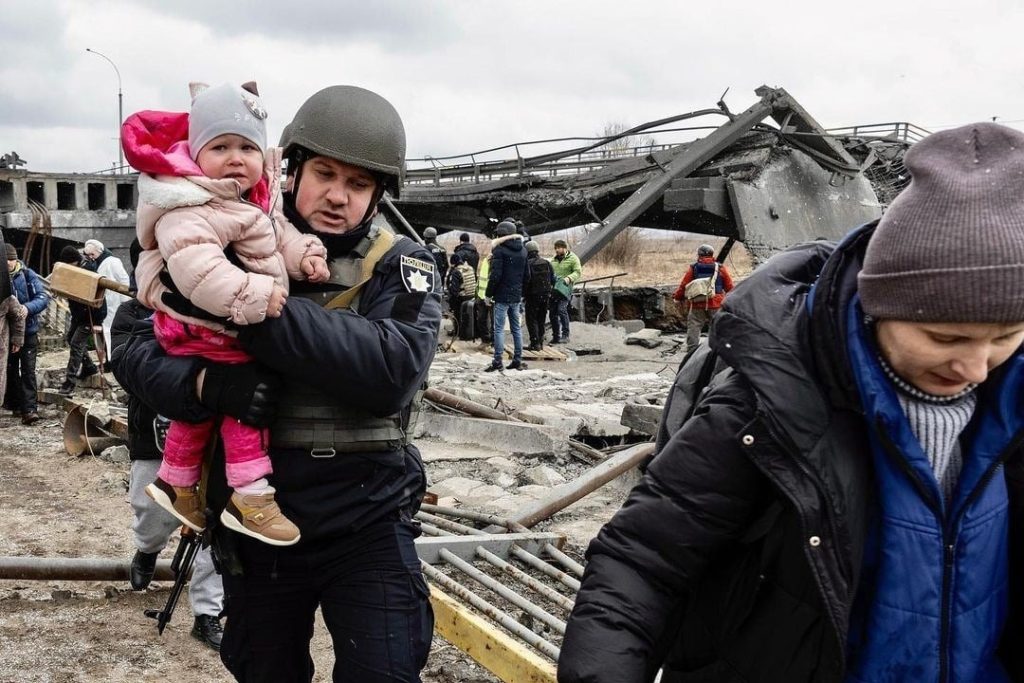Prof. Madhavan K. Palat, is a former professor of History at the Centre for Historical Studies at the School of Social Sciences at Jawaharlal Nehru University, New Delhi. Professor Palat is considered to be a foremost scholar in the realm of Russian and European intellectual history. In 2006 he was a visiting professor of imperial Russian history at University of Chicago. Asian Lite’s Abhish K. Bose discusses the ramifications of the Russia – Ukraine war with the eminent professor. Excerpts from the interview:
ABHISH K. BOSE: The Russian invasion of Ukraine has activated insecurity among small nations across the world and forced them to earmark more resources for defence. This would compel the countries to cut back on crucial sectors such as agriculture, education, and the health sector, which are integral in improving the quality of life of the people. What will be the impact caused in the economies of small countries as a result of it?
PROF. PALAT: It is not certain that it has created insecurity for the small nations of the world other than those in East Europe contiguous with Russia. These nations in any case depend on the USA for defence, and they will not have to cut back seriously for defence.
ABHISH K. BOSE: According to the United Nations, 11 million Ukrainians have been displaced by this war. 5.3 million of them have taken refuge in neighbouring countries and 6.5 million people are internally displaced. Two-thirds of the children in Ukraine are adversely affected. Tens and thousands of houses and apartments, besides public facilities, are destroyed. How long will it take for Ukraine to overcome the still worsening humanitarian crisis? How should the rest of the world respond to this?

PROF. PALAT: It depends on the kind of peace that will be established at the end of the war and the aid Ukraine receives from the West for reconstruction. The rest of the world would have varied responses, it cannot be a single one. As the West is heavily invested in Ukraine, they will be the ones responding; elsewhere, there will be little action other than words of sympathy.
ABHISH K. BOSE: Ukraine grows food to feed 400 million people across the world. This includes 50 per cent of the world’s sunflower oil supply, 10 per cent of the world’s grain supply, and 13 per cent of the world’s corn supply. The estimates say that 30 per cent of the crop areas will not be planted or harvested due to the war. Adding to this supply chains from Ukraine are disrupted because of the closure of Black Sea ports. How will affect the rest of the world?
PROF. PALAT: The impact is obvious, there will be shortages, scarcity, possibly famine in some places, inflation, and an opportunity for other food crop growers to take advantage.
ABHISH K. BOSE: The USA, the UK and Canada have imposed an embargo on Russian oil and gas after the invasion of Ukraine. The European Union too is planning to reduce dependence on Russian gas and oil by 2024. Big private energy companies are leaving Russia. How this will affect Russia? Is it likely that this would hurt Europe more than Russia?
PROF. PALAT: Both will be hurt.
ABHISH K. BOSE: There is a view that Ukraine has been led into this tragedy by the US and the EU. Do you agree? What do you think about Donald Trump’s claim that this crisis would not have happened if he were still the President of the US?

PROF. PALAT: Yes, Ukraine has been led into this by the US and EU with the carrots of EU and NATO dangled. Perhaps Trump would not have done this, but nothing is certain about Trump. And after Trump, the same thing could have happened.
ABHISH K. BOSE: Does the Ukraine crisis signal the beginning of the end of the American domination of the world? Is the focus of history shifting from the Euro-American block to Asia? How do you read the Chinese policy regarding this crisis?
PROF. PALAT: American domination is not declining. Instead, the crisis has reinforced American domination over Europe which has lined up fully, as also the rest of the G7. There is no shift to Asia. In fact, America is now targeting Russia and China together. The Islamic countries will benefit to the extent that the war on terror ends because the focus is on Russia-China.
ABHISH K. BOSE: Weakening Russia is the stated goal of the US if the Secretary of Defence Austin is to be believed. What could be the end result of this goal? Will it accelerate the Chinese domination of the world, rather than enhance the security of the countries in Eastern Europe?
PROF. PALAT: Weakening Russia does not strengthen China, since Russia was not a challenger to China.
ABHISH K. BOSE: Do you believe that the present crisis could aggravate into a nuclear war, limited or otherwise? Does Russia threaten to resort to the nuclear option if its existence is threatened? Does this statement betray a heightened sense of insecurity on the part of Russia, or is it mere bluster?
PROF. PALAT: There are no indications of a nuclear war unless the US is foolish enough to provoke it. But it would not since it has enough instruments to bring down Russia. After all, it did that to the Soviet Union, which was so much more powerful. Russia is of course trying to whip up European and American opinion, possibly also Ukrainian, by talking of a nuclear war which it knows it will not resort to.

ABHISH K. BOSE: India has chosen to be neutral? Is neutrality a feasible option? Is this the best option for India? What is more, is this a stand that harmonises with what India has stood for these many decades? What could the long-term implications of India’s present neutrality?
PROF. PALAT: Neutrality is the best option, the closest to non-alignment. It harmonizes well with India’s traditional stand.
ABHISH K. BOSE: What could be the impact of the Ukraine crisis on China’s geopolitical ambitions? Will it encourage China to annex Taiwan? Can the US afford to stand by Taiwan, in case the need arises?
PROF. PALAT: China will be more cautious, not adventurous, now. It will keep off Taiwan while engaging in noisy polemic.
ABHISH K. BOSE: Russia would not have annexed Crimea in 2014 or launched this ‘special operations’ into Ukraine if it had not signed the Budapest Memorandum in 2004. Had it still retained the vast nuclear stockpile it held then comprising some 1900 warheads, it would have avoided the present misery. Will not other countries of the world read this message and will this not mean a setback for nuclear non-proliferation?
PROF. PALAT: That is true, as it was for Saddam Hussein also. But it is not a setback for nuclear non-proliferation since the nuclear non-nuclear powers are fixed. There can be no change.
ABHISH K. BOSE: If you were to reorganize the UN, especially in light of its ineffectiveness in dealing with the present crisis, what major changes would you suggest? In particular, what are your views on continuing the facility of veto powers for a limited number of nations, institutionalising inequality in the UN based on the asymmetry of power? Should this be continued forever? Do you see this provision being abolished in the near future?

PROF. PALAT: The UN has little role in this crisis, and it has not failed, any more than in any of the previous crises.
ABHISH K. BOSE: It is said that the nations of the world preach peace and prepare for war at the same time. This is due to the axiomatic assumption that war is a necessary arbiter in international affairs. Do you agree with this view? Is it possible to create a climate of opinion against war? Where do we make a beginning in this regard?
PROF. PALAT: Yes to both. We can begin where Nehru always was.
ABHISH K. BOSE: What will be the long-term economic and political ramifications of the Russia – Ukraine war? Is it really possible to overcome the disastrous impact of the war?
PROF. PALAT: Long-term it is a blow to Russia, not to China, though China is being independently targeted.








